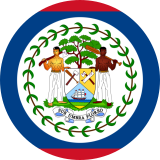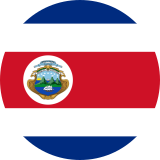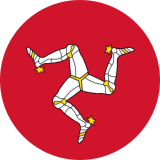The Prospects of iGaming in African Countries
Smart Money experts talk about the dynamic African digital casino sphere, changes in legislation, and the benefits of launching entertainment projects in this region.
Nigeria: a Recognised Industry Leader

This is a rather promising market. Despite regulatory barriers and legal uncertainties, its economy remains one of the fastest growing on the continent.
General State of Affairs in the Jurisdiction
Nigeria is the largest country in the region by population (more than 223 million people) and one of the most actively developing territories in the field of digital services.
About 60% of the local citizens are youngsters under 25. They are actively involved in bookmaking, cards, and table games.
Key facts about the industry:
- more than 30 million Nigerians place bids regularly (2–3 times a week);
- sports betting via mobile applications is the audience’s favourite format;
- Bet9ja, NairaBet, MerryBet, and other brands dominate the market.
Legal Framework
The gambling sector is regulated both at the federal and state levels. The main statutory body is the NLRC. It is responsible for controlling raffles and some other types of entertainment.
The legislation concerning such activities remains ambiguous. Although there is no direct ban on the placement of bids, the Gaming Machines Prohibition Act of 1977 restricts the use of some devices.
Lagos is the most liberal to the industry. The local regulator allows virtual casinos and poker rooms to operate upon registration with the relevant authorities.
Benefits of Launching an Entertainment Business
According to PwC forecasts, the Nigerian betting market could reach $2 billion by 2027.
Reasons why it is worth opening a digital gambling platform in the next 3 years:
- Huge client base. At the beginning of 2025, it amounted to 100 million Internet users. This is the highest figure on the African continent.
- Fast-paced technological environment. Nigeria is experiencing an active spread of smartphones and Fintech applications (for example, such electronic wallets as Flutterwave, Opay, and PalmPay). It is safe to say that the market is ready to scale with minimal costs for IT infrastructure.
- Loyal audience. Young people are actively involved in iGaming. It has become part of pop culture and everyday life. In practice, this factor ensures a high level of customer retention. The main thing is to apply a competent UX/UI strategy and correctly localise the products (for instance, due to the support of local languages — Yoruba, Hausa, and Igbo).
- Excellent payment infrastructure. Players have access to USSD transfers, regional settlement methods (Paystack or Flutterwave), and cryptocurrency.
Legal Risks of Businesses
The key point is the uncertainty of regulation of the iGaming vertical. Federal laws do not contain clear rules for the work of digital portals, which creates a legislative vacuum.
Dual licensing is another important matter. Many entrepreneurs receive permissions from NLRC but then, they face duplicative requirements from states, especially in Lagos. This increases the costs and risks of operators.
Domestic authorities are interested in taxation and the formalisation of the sector. Within 2–3 years, the niche may receive a clearer and more favourable regulatory framework. In 2023, a 10% levy on the bettors’ winnings was already introduced, and other initiatives may follow.
Kenya: a Large-Scale Reorganisation of the Market

The local entertainment business is going through a period of structural changes associated with new legislative measures and technological trends. Over the next 3 years, project owners will have to adapt to new conditions, taking into account all legal risks and growth prospects of the industry.
Updated Regulation
In December 2024, Kenya adopted the Gambling Control Act, which introduced significant changes to the casino sphere:
- Renewal of a governing body. The tasks of the Betting Control and Licensing Board (BCLB) include overseeing operators, ensuring their compliance with the laws, and promoting an adequate attitude toward the placement of bids.
- Requirements for the share capital. All licensed companies should have at least 30% of their stock owned by Kenyan citizens. This measure is designed to boost local engagement and control in the niche.
- Increased fiscal rates. The tax on GGR grew from 7.5% to 15%.
Prospects and Opportunities for Entrepreneurs
Despite regulatory challenges, the Kenyan market continues to show great potential:
- Growth of mobile traffic. Online casino solutions are becoming more accessible to the population thanks to 60% Internet penetration. Today, 90% of locals own smartphones.
- Youth demographics. 75% of Kenyans are under 35 years old. This creates a favourable audience of bettors, which is open to various formats and technological advances.
- Integration of cryptocurrencies. The use of digital money in iGaming is gaining popularity, providing players with increased security and anonymity of transactions. It also allows businessmen to expand their customer base and offer innovative payment services.
Legal Complexities
Let us consider what risks operators may face:
- Heavy taxation. An increase in gross income levy to 15%, as well as the introduction of additional fees, can reduce the entrepreneurs’ profits. So far, brands are in no hurry to leave the market but, on the contrary, are looking for new traffic monetisation sources.
- Strict licensing requirements. The Gambling Control Act states that project owners not only should have local capital participation but also adhere to rigorous standards of financial reporting and business transparency. This includes mandatory audits, support for anti-money laundering measures, and other initiatives.
- Restrictions on advertising. They are aimed at protecting minors and vulnerable people. The main innovation is a ban on any type of casino promotion during the daytime.
Successful activity in the Kenyan market in the next 3 years will require operators to be flexible, creative, and comply with regulatory requirements. The niche is also actively implementing European standards related to transparent marketing and upholding the gamblers’ rights.
South Africa: Rapid Income Growth

The casino sector is quickly developing, especially in the virtual segment. However, entrepreneurs also face several legislative changes that must be taken into account.
Regulatory Landscape
In March 2024, the South African Minister of Commerce and Industry introduced a bill providing for tighter rules regarding the gaming sphere.
The proposed amendments include:
- restrictions on advertising;
- a ban on the placement of bets on greyhound racing;
- enhanced control over the location of casinos.
Operators should closely monitor developments and prepare themselves for possible changes.
In October 2024, a draft law on remote entertainment was also introduced. The initiative is aimed at regulating the work of online platforms, which were previously in the “grey zone”.
The document envisages the introduction of:
- a licensing system for the owners of online portals;
- measures aimed at promoting an adequate attitude toward betting;
- restrictions on casino advertising on radio and TV during the daytime.
Prospects and Advantages of the Sector
Despite the planned changes, the South African market has several positive characteristics:
- Revenue growth. In 2023–2024, the operators’ profit increased by 25%, reaching $3.37 billion. The development indicators are particularly noticeable in the iGaming niche, which amounted to 49% of the industry’s total return.
- The popularity of bookmaking. It is considered the main source of income (about 60.5% of the sector’s revenue is accounted for by this direction). Such a factor indicates a high community engagement in sports events and a potential for further scaling of the segment.
- Spread of gaming on the Internet. With the increasing penetration of cyberspace and smartphones, the casino vertical is becoming increasingly popular. Its upcoming regulation may create favourable conditions for entrepreneurs and attract investment.
Legal Risks
In February 2023, South Africa was included in the grey list of the FATF. The main reason for the sanctions is deficiencies in measures to combat money laundering and terrorism financing.
Such actions have led to increased international monitoring, especially with regard to the gaming industry. It is by default associated with large cash and non-cash transactions. That is why increased control has reduced the liquidity of the business, led to delays in settlements with counterparties, and brought other challenges.
The local government aims to get off the list by mid-2025. It will require strict adherence to new standards of financial transparency and reporting from entrepreneurs.
FATF also identified inconsistencies in the licensing and regulation of casinos in different provinces of RSA. Some regions have more rigorous requirements than others, which makes entertainment sites vulnerable to criminals.
The authorities have already announced large-scale reforms aimed at unifying legal standards. Operators should be prepared for the upcoming changes.
The Main Things about iGaming in Africa
The best countries for launching and scaling online casinos are Nigeria, Kenya, and RSA.
Key aspects that entrepreneurs need to take into account:
- Nigeria is an economic leader and the most densely populated area on the continent. Working in this jurisdiction gives companies access to a huge customer base and a developing technological environment. The state is also characterised by a loyal audience and an advanced financial infrastructure.
- Kenya is going through a period of legislation reforms. The innovations are designed to organise licensing, fill the local budget, and establish responsible gambling principles.
- RSA is demonstrating a dramatic growth of income in the entertainment sector. The main difficulties are related to FATF restrictions, due to which most transactions are subject to increased monitoring.
The Smart Money studio offers turnkey platforms, betting sites, lottery software, payment systems, and other advanced solutions.
Check the information used to contact us carefully. It is necessary for your safety.
Fraudsters can use contacts that look like ours to scam customers. Therefore, we ask you to enter only the addresses that are indicated on our official website.
Be careful! Our team is not responsible for the activities of persons using similar contact details.


 Alderney
Alderney  Anjouan
Anjouan  Australia
Australia  Austria
Austria  Belgium
Belgium  Belize
Belize  Costa Rica
Costa Rica  Curacao
Curacao  Dominican Republic
Dominican Republic  Estonia
Estonia  Georgia
Georgia  Gibraltar
Gibraltar  Isle of Man
Isle of Man  Italy
Italy  Kahnawake
Kahnawake  Malta
Malta  Ukraine
Ukraine 











